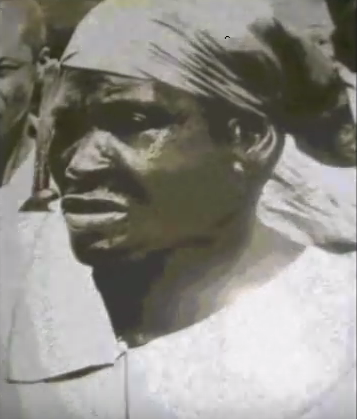The female revolutionary history forgot

The narrative surrounding revolutionaries and public figures is almost always skewed to favor those with the most privilege. Take, for instance, the narrative of the Dominican Mirabal sisters: wealthy, light-skinned Dominican revolutionaries known for engaging in clandestine activities to overthrow the Trujillo regime. The Mirabal sisters, who were assassinated by the Trujillo regime in 1960, have had books written about them and even museum galleries dedicated to their activist efforts. They are now widely recognized as martyrs in the Dominican Republic.
But the Mirabal sisters are hardly the only female, Dominican revolutionaries worthy of recognition. Mama Tingó, a Black woman revolutionary who fought for working-class farmers, is seldom heard about or celebrated yet was crucial to Dominican history.
Mama Tingó, also known as Doña Cristiana Florinda Soriano Muñoz, was born November 8, 1921 in Villa Mella, Dominican Republic, to a family of poor farmworkers. She and her husband, Felipe, were working their farmland in Hato Viejo, Yamasá, in 1974 when landowner Pablo Díaz Hernández reclaimed the land that the farmers of Hato Viejo had occupied for more than half a century. Throughout the land dispute, several young people were injured; one of the farm residents had her ear chopped off. At one point, politicians arrived to the farmland and enclosed it in barbed wire.
Mama Tingó, who was in her 50s, was a leader of the Liga Agraria Cristiana, an advocacy group for farmers or “campesinos,” and helped lead the fight for the poor farmers. Mama Tingó and her husband even went to then-president Balaguer, one of Trujillo’s protégés, to fight on behalf of those hundreds of families. Although Balaguer had promised to fairly distribute the land among the 350 families living on it, he ultimately failed to stay true to his word. Hernández, who claimed the land was his, destroyed the land of the campesinos with bulldozers and the protection of armed men. Still the farmworkers fought back, and over a dozen of them, including Mama Tingó, were arrested before the conflict was ultimately handled in court. On November 1, 1974, the farmers of Hato Viejo appeared before the Monte Plata Court to have their case heard.
Mama Tingó didn’t show up to the trial. Someone had told her that her pigs had been set loose, and when she went to go gather them, one of Hernandez’s men, Ernesto Diaz, who was waiting there for her, shot her twice. Although Mama Tingó tried to fight back with a machete, the gunshots, one to the head and one to the chest, killed her. She was 52 years old.
Mama Tingó’s story is not only one of incredible strength and resilience, but also one that forces us to challenge our notions of who we traditionally regard as leaders and public figures. Mama Tingó was a poor, Black farmer with very little education. In fact, neither she nor her husband went to school, and they spent most of their lives working. And yet she became a vocal advocate for an extremely vulnerable community of people.
Unfortunately, it’s likely that Mama Tingó isn’t widely celebrated in the Dominican Republic because of deeply culturally embedded anti-Blackness and classism. But the same way these respectability politics have affected the value put on certain individuals’ contributions to history in the Dominican Republic, so do they affect similar individuals in countless other cultures and countries. In the wake of International Women’s Month, therefore, it’s worth asking ourselves some questions. How comfortable are we with having leaders with very little education? How willing are we to let poor and low-income people speak for all of us and lead a movement? What does it say about community movements if the celebrated leaders are all easy-to-digest caricatures of respectability and excellence? Are we willing to let those at the margins of society have the most say in movements? Will we make room for them?
Whether or not we have the answers to these questions, however, leaders like Mama Tingó will emerge and take charge whether or not we are ready for it. It’s only a matter of when.
More articles by Category: Feminism, International
More articles by Tag: Activism and advocacy, Women of color, Women's history, Women's leadership




























